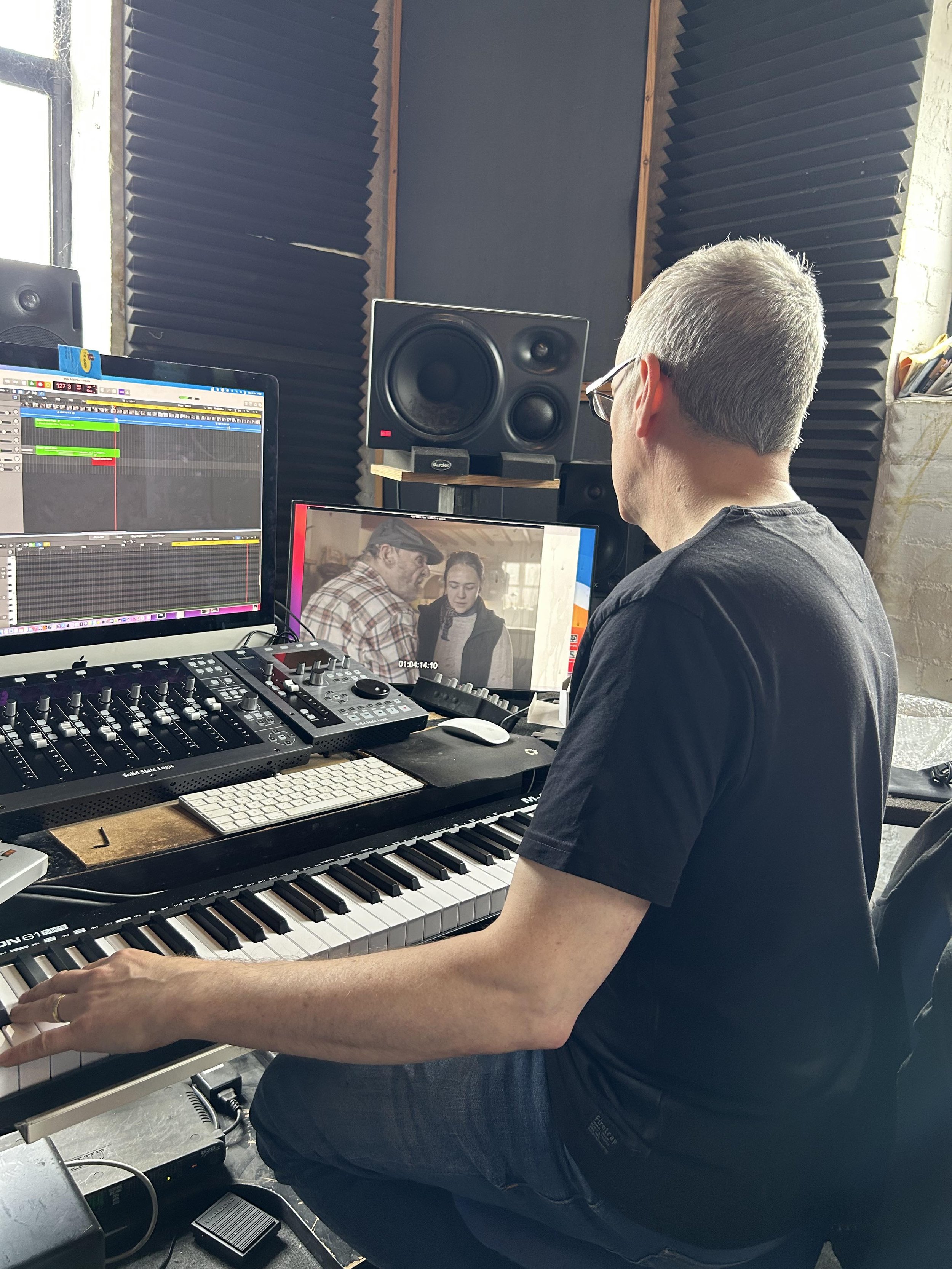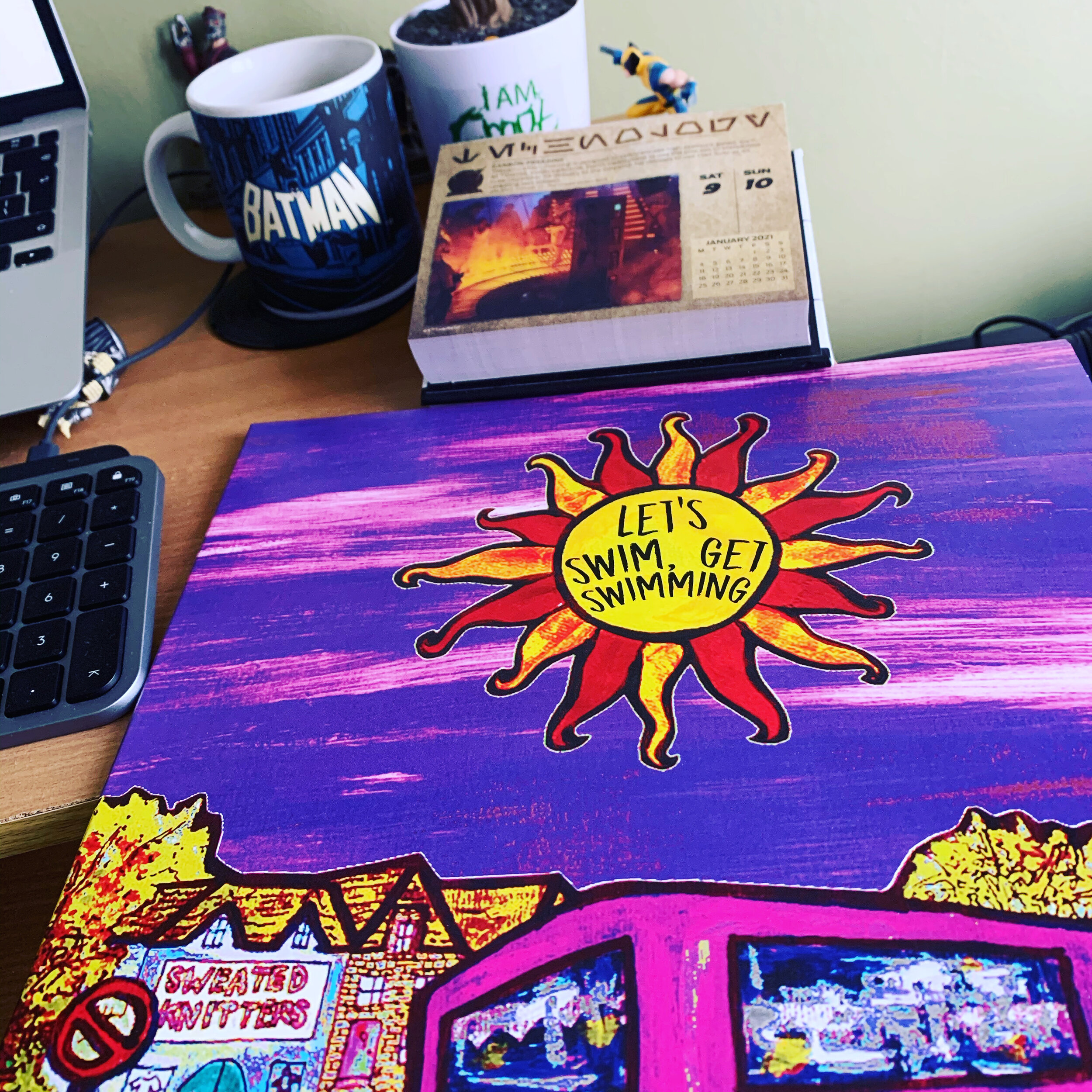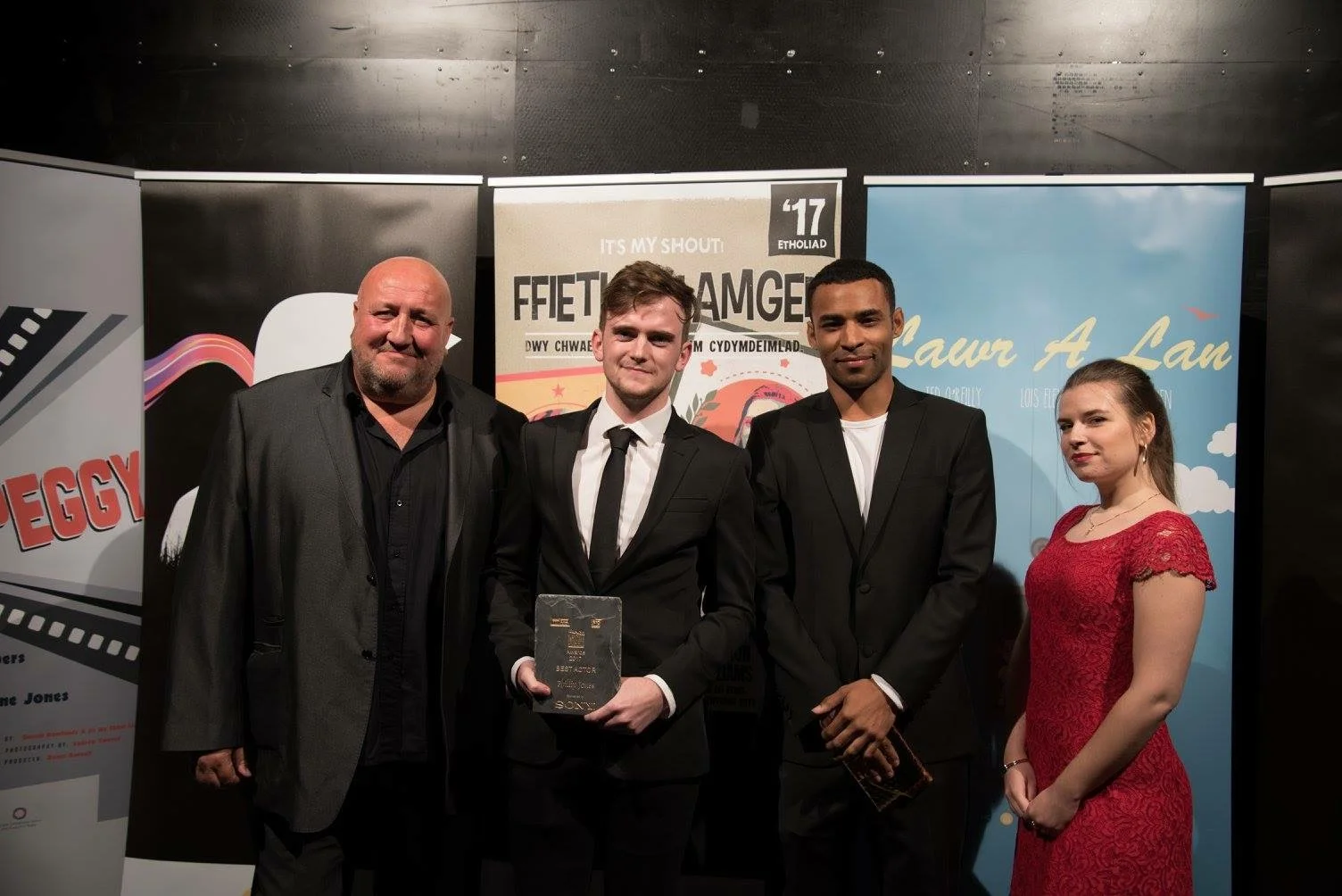There’s an old adage that all writing is rewriting, and I firmly believe that to be true. Through the process of directing my first short film, Little Brown Bird I’ve come to realise that everything is rewriting.
The obvious rewriting is the twenty or so versions of the script itself, which began life as something with far less substance than where we ended up. Taking on notes from writing mentors, my producer, and other writers I trust was the first part of the process. Much of that involved strengthening the central relationships and removing unnecessary dialogue and superfluous exposition. Each round of amends kickstarted new thought processes, and ways to strengthen things and make the story even better.
Then things shifted to the logistical, as the shoot became closer to reality, the casting, the location, the funding, and the amount of time we had to shoot, all these things lead to changes to the script. Some changes were very purposeful surgeon-like tweaks and others were very much happy accidents when I was backed into a corner with nowhere to turn. Some of my favourite aspects of the script, and in turn the film, were caused by restrictions and things I realised weren’t possible - necessity is the mother of invention.
Once we arrived at the location, me and our DoP Mark Nutkins had half a day to get used to the farm we were shooting at. We started to think about how to use the space, and what we wanted to do with the camera along with some initial staging and blocking conversations based on our shotlist. These conversations lead to rewrites and it was extremely cathartic to do those on set, looking around the real space rather than the version of it in my head (as our only location recce had been a virtual one). Seeing the farm encouraged me to trim back dialogue and lose some lines that we didn’t need thanks to how well the location worked for our film.
On the second day, and our first day of principal photography finally got to work with our lead actors in person at the location. A morning of staging and blocking conversations, discussions about intent and emotions and some all-important rehearsals helped shape the script even more. Once I saw the relationship between Dad (John Rhy-Davies) and Kate (Eliza Butterworth) played out before me, I knew that there would be looks, gestures, and touches between them that did far more than what was on the page. That led to more rewrites, honing some dialogue, making other lines work better for the three-dimensional characters I was seeing before me, and most importantly removing lines that weren’t 100% needed. This process carried on throughout our three-day shoot. Overnight I’d be rereading the next day’s pages in bed and deciding what could go and on-set I’d be giving notes that included changes to the dialogue as we moved between takes and scenes. As I became more confident about what we were making, more and more of the dialogue got stripped back.
The next round of rewrites happened in the edit, working with our editor Luke Andrews. His initial assembly cut had removed some lines of dialogue, to get out of scenes quicker or to allow the actors’ performances more room to breathe. As we went through new versions, and I gave my notes, we ended up cutting more lines, including some that had been my favourites during the writing process itself. Ultimately the script purely serves to inform the finished work and is not gospel, and in contrast some lines that felt throwaway on paper have become extremely important due to the shape of the edit and the power of the central performances from Eliza and John. Making this film has taught me a lot about directing, as it was my directorial debut, but it has taught me just as much about writing. The message I’ve taken away from this whole experience is that less is more, throw it all out there and then keep removing things until you have fulfilled your intention. Don’t be beholden to your own words, embrace change, enjoy collaboration and rejoice in something far greater than the sum of its parts.
We have locked the edit on Little Brown Bird and are partway through our colour grade and sound mix. Our score from composer Robert Reed was signed off on Friday, that also had a similar process to the script, paring things back, removing things, and honing the overall piece so that the intention and emotions were just how they needed to be.
Our film is being submitted to festivals in the coming weeks and there will also be a cast and crew screening, to include many of the people who backed our Indiegogo crowdfunding campaign. I’m very proud of Little Brown Bird and every rewrite has been part of that process, I can’t wait to share it with the world.

















